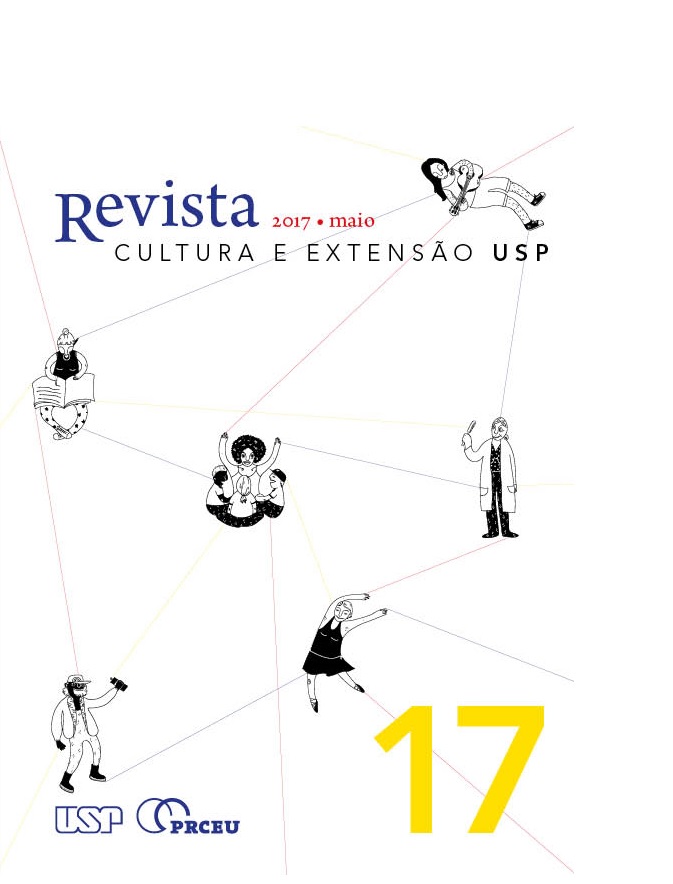Construction of contextualized knowledge and popular culture in the teaching of sciences through the production of digital videos in the context of scientific and technological folkcommunication
DOI:
https://doi.org/10.11606/issn.2316-9060.v17isupl.p51-62Keywords:
Digital video. Science teaching. Folk Scientific and Technological Communication.Abstract
This work deals with the construction of contextualized knowledge through popular participation in science teaching through the production of digital videos in the context of folkcommunication. From the recognition of the limitations of the school and the traditional conception of education we present the results of a participatory intervention research that analyzed how the production of digital videos by students of a school in the Municipal Network of the municipality of Itapissuma (PE) contributes to the construction of knowledge contextualized in science teaching. The methodology used was of qualitative nature, employing semi-structured interviews and participant observation for the data collection with eighteen students and one teacher. Prior to the beginning of the students' work, workshops were created to create digital video, followed by interviews, in the post-production phase. The results show that the assumption of the role of cultural producers contributes significantly to the process of knowledge construction and to the contextualized implementation of the curricular contents. The publication of the videos in social networks, followed by debates and dialogues about scientific concepts that impact the daily life of the community where they live (pollution, sexually transmitted diseases), on the other hand, established a nexus between life, popular culture and science teaching, according to the elements of a Scientific and Technological Folk. Thus, recognizing the importance and necessity of pedagogical mediations that promote interaction, collaboration, teamwork and the development of autonomy, our results validate the production of digital video as an educational technology capable of establishing new ways of understanding the world.Downloads
Download data is not yet available.
Downloads
Published
2017-05-28
Issue
Section
Articles
License
Autores que publicam nesta revista concordam com os seguintes termos:
- Autores mantém os direitos autorais e concedem à revista o direito de primeira publicação e de tradução, com o trabalho simultaneamente licenciado sob a Licença Creative Commons Attribution (CC BY-NC-ND 4.0) que permite o compartilhamento do trabalho com reconhecimento da autoria e publicação inicial nesta revista.
- Autores têm autorização para assumir contratos adicionais separadamente, para distribuição não-exclusiva da versão do trabalho publicada nesta revista (ex.: publicar em repositório institucional ou como capítulo de livro), com reconhecimento de autoria e publicação inicial nesta revista.
- Autores têm permissão e são estimulados a publicar e distribuir seu trabalho online (ex.: em repositórios institucionais ou na sua página pessoal) a qualquer ponto antes ou durante o processo editorial, já que isso pode gerar alterações produtivas, bem como aumentar o impacto e a citação do trabalho publicado (Veja O Efeito do Acesso Livre).
How to Cite
Construction of contextualized knowledge and popular culture in the teaching of sciences through the production of digital videos in the context of scientific and technological folkcommunication. (2017). Revista De Cultura E Extensão USP, 17(supl.), 51-62. https://doi.org/10.11606/issn.2316-9060.v17isupl.p51-62


